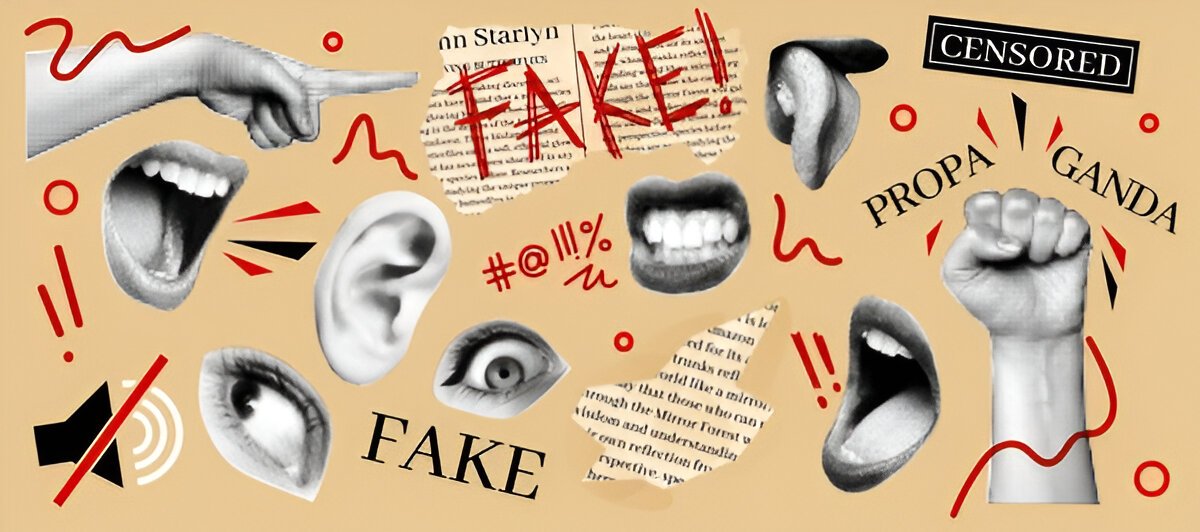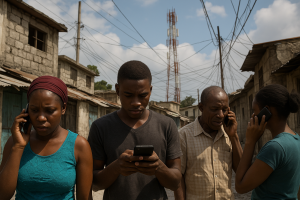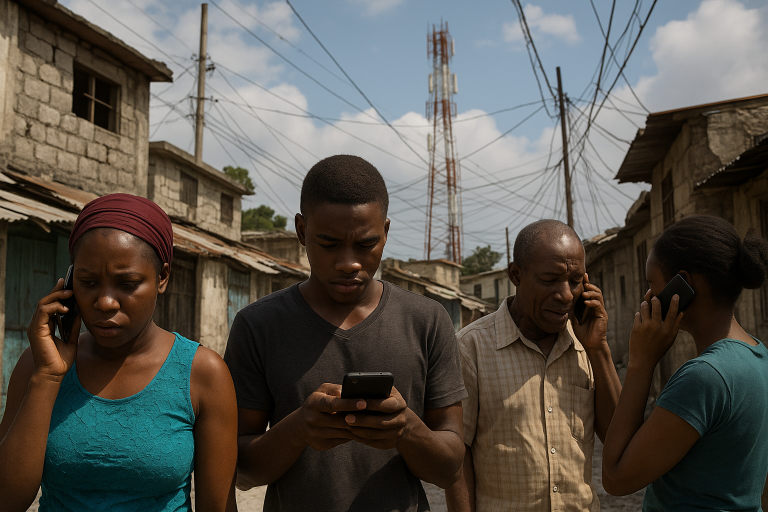Disinformation vs. Misinformation: Key Differences
Before diving into the issue, it’s important to differentiate between “disinformation” and “misinformation.” Though they sound similar, they have distinct meanings. Disinformation is false information that is deliberately spread with the intention of misleading or deceiving. It’s a strategic act, often used to manipulate public opinion or political outcomes.
On the other hand, misinformation refers to incorrect information shared without intent to harm. It’s often spread unwittingly, like passing along a rumor without fact-checking. In Haiti, both disinformation and misinformation contribute to a chaotic media environment, amplified by the speed and reach of social media, where falsehoods often circulate faster than facts.
The Role of Social Media: Double-Edged Sword
Social media has transformed how people in Haiti consume news and share information. Platforms like Facebook and Twitter serve as key sources of news, especially where access to traditional media can be limited or unreliable. This accessibility gives citizens the power to voice their opinions on pressing issues, but it also creates fertile ground for disinformation to flourish.
False information can spread quickly on social media, especially during times of crisis, such as political turmoil or natural disasters. Sensational or misleading posts tend to go viral, while accurate news often struggles to reach the same level of engagement. Algorithms that prioritize attention-grabbing content exacerbate the problem, making it difficult for users to discern credible sources from unreliable ones.
Public Opinion: The Dangers of False Narratives
The consequences of disinformation and misinformation extend beyond individual beliefs—they shape public opinion on critical issues in Haiti. When false information takes root, it can influence elections, public policy, and even public health efforts.
For example, during elections, disinformation campaigns can distort perceptions of candidates or policies, leading voters to make misinformed choices. Misinformation about voting procedures can result in voter disenfranchisement or fuel apathy, undermining Haiti’s fragile democratic processes.
The spread of disinformation can also have serious health consequences. In the case of the COVID-19 pandemic, for instance, misleading information about vaccines and treatment options led to confusion and hesitancy. This misinformation not only endangers public health but also weakens efforts to tackle collective challenges.
The Response of Traditional Media: Uphill Battle for Credibility
Faced with the rise of disinformation, Haiti’s traditional media outlets are working hard to maintain credibility. Journalists often grapple with the need to report quickly while ensuring the accuracy of their stories, a delicate balance that’s becoming increasingly difficult in today’s fast-paced media environment.
To combat false narratives, some outlets have started fact-checking initiatives aimed at debunking misinformation. These efforts are crucial for regaining public trust, but limited resources mean that smaller news organizations often struggle to compete with larger platforms, where sensational content still garners more attention.
Collaborations between media outlets and civil society groups are proving effective in raising awareness about the dangers of misinformation. These partnerships work to improve media literacy by helping citizens think critically about the news they consume and encouraging them to verify the information before sharing it.
Building a Resilient Media Landscape
Addressing the issue of disinformation and misinformation in Haiti requires a comprehensive approach involving multiple stakeholders. Media literacy education is key. Teaching Haitians how to critically assess the information they encounter will empower them to navigate the often-confusing media landscape.
Another important strategy is fostering collaboration between traditional media outlets and digital platforms. By working together, these entities can share resources and amplify accurate reporting, helping to curb the spread of falsehoods.
Transparency is also essential for rebuilding public trust. When audiences know how news is reported and where information comes from, they are more likely to engage with credible sources rather than falling for sensationalism.
A Shared Responsibility
Disinformation and misinformation pose significant challenges to Haiti’s media landscape and society. As we’ve seen, they can influence public opinion in harmful ways and erode trust in essential institutions. However, with a commitment to improving media literacy and fostering collaboration among media, civil society, and digital platforms, Haiti can build a more resilient information ecosystem.
We all have a role to play in combating the spread of misinformation. Whether engaging with content on social media or watching the news, we must be vigilant about verifying the credibility of the sources we rely on. Together, we can help mitigate the impact of disinformation and work toward a more informed and united future for Haiti.












Add a comment